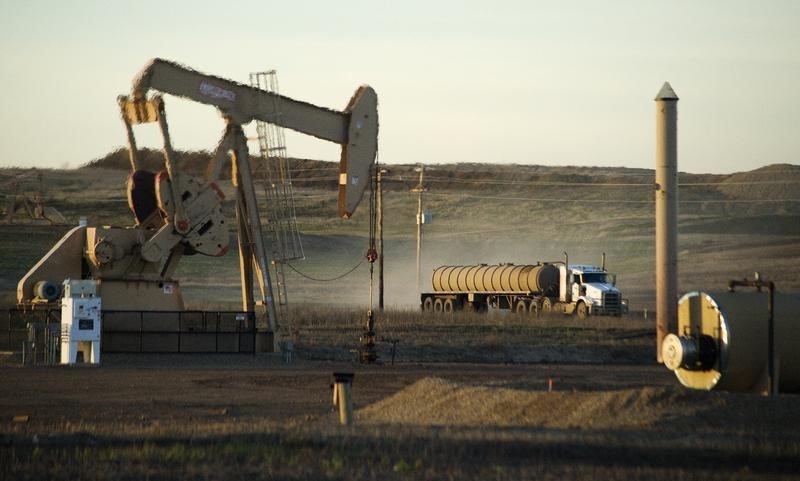Investing.com - Crude oil prices plunged in Asia on Monday as major oil producers gathered in Doha, Qatar failed at the weekend to reach an agreement to freeze production, setting the stage for a continued glut in the global crude oil market.
The producers—Saudi Arabia, Russia, Kuwait, and other OPEC members, but not including Iran—met most of the day but broke up toward evening without a deal.
Saudi Arabia had insisted there could be no agreement unless Iran froze production, too. But Tehran did not attend the meeting and said it needs time to recover from three years of oil sanctions.
On the New York Mercantile Exchange on Friday, crude oil for delivery in May plunged 5.32% to $39.49 a barrel.
In the week ahead, market players will be focusing on data from industry group the American Petroleum Institute on Tuesday ahead of Wednesday’s weekly government report on stockpiles will also be in focus.
Last week, oil prices fell sharply on Friday amid doubts that Sunday’s meeting of major suppliers in Doha would result in an agreement to freeze output or that it will have a meaningful impact.
Saudi Arabia and Russia have approved a deal to freeze output at January levels until October 1 and other producers are expected to also do so.
Crude oil prices have rallied more than 30% since the proposed freeze was first put forward in February.
But analysts have cautioned that freezing production near current levels is unlikely to reduce the global supply glut.
The International Energy Agency warned Thursday that a deal is likely to have a limited impact on global supply and markets are unlikely to rebalance before 2017.
Data on Wednesday showing a larger than expected increase in U.S. crude stockpiles also underlined oversupply concerns.
The Energy Information Administration reported that U.S. crude inventories increased by 6.6 million barrels in the latest week, bringing total crude stocks to a new record high of 536 million barrels.
Analysts had expected a storage build of 1.85 million barrels.
